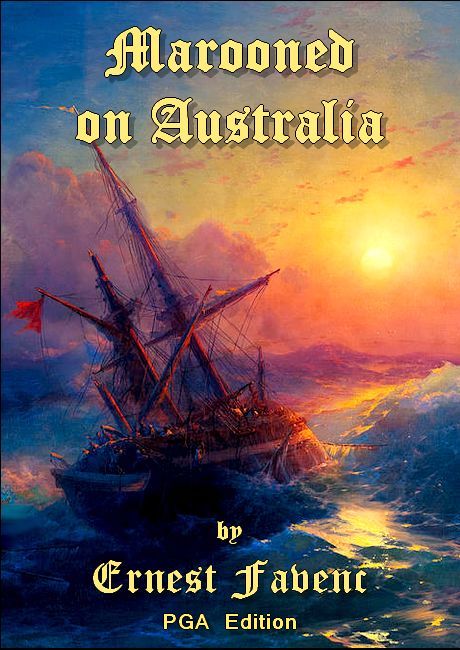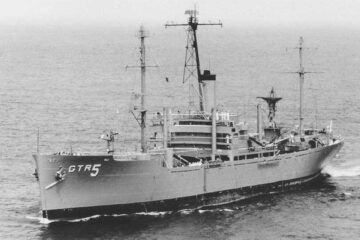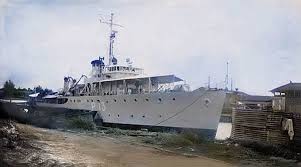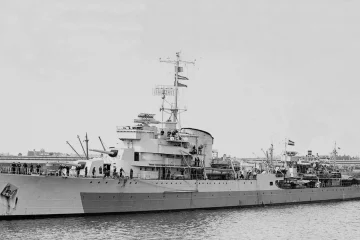
Being the Narration by Diedrich Buys of His Discoveries and Exploits in Terra Australis Incognita about the Year 1630. Author: Ernest Favenc. First known publishing date: 1896
A fictionalised account of the adventures of two mutineers (Diedrich and Paul Buys) from the Dutch ship Batavia which was shipwrecked on the coast of what would later become known as Western Australia. In the aftermath of the grounding of the ship, which carried 320 passengers and crew, the mutineers engaged in an ‘orgy of rape and bloodshed,’ which led to the death of at least 125 men, women and children. The subsequent interrogation and sentencing of those involved saw seven men hanged (but not before most had their hands chopped off). Two participants, an 18-year-old cabin boy, Jan Pelgrom de Bye and an older sailor named Wouter Loos, were spared execution in favour of being marooned on the mainland. Favenc’s protagonists in the book are given the names Diedrich Buys and Paul. Both men were to be picked up later by-passing Dutch ships but were never seen again.
In his preface to the 1896 Blackie edition, Favenc writes:
In the following romance I have endeavoured to associate the tradition of De Gonneville’s visit to Australia (see below) with the historical fact of the wreck of the Batavia, and the marooning of two of the mutineers. The wreck of the Batavia is perhaps one of the most murderous tragedies that ever happened in any part of the world. One of the ruffians confessed, before being hanged, to having killed and assisted to kill, twenty-five defenceless people. ‘
As with later historical investigations into the fate of these men, and at least 73 other Dutch shipwreck survivors between 1629-1727, Favenc considers the question of what might have happened to them, and in particular what sort of interaction they may have had with the Aboriginal people they encountered. These questions have in later years been answered to some degree by research which demonstrates that some of the Amangu clan carry a gene which can be traced to a specific region (Leydon) in Holland.
An e-book version was published by Project Gutenberg Australia in 2023
Binot Paulmier de Gonneville.
Binot Paulmier, sieur de Gonneville was a French navigator of the early 16th century, was widely believed in 17th and 18th century France to have been the discoverer of the Terra Australis Currently, history books from Normandy, in France, teach that Binot Paulmier was a French-Norman navigator who arrived in what is now Southern Brazil in 1504.
According to his published memories, in 1503 de Gonneville, challenging the Portuguese policy of mare clausum, sailed from Honfleur in Normandy with his crew and the help of two Portuguese pilots, heading for the East Indies. When he reached the Cape of Good Hope his ship L’Espoir (The Hope) was diverted to an unknown land by a storm. In 1505 he returned claiming to have discovered the “great Austral land,” which he also called the “Indes Meridionales”. According to de Gonneville, he had stayed six months in this idyllic place, where the inhabitants didn’t have to work because of the riches. De Gonneville stated that this land was six weeks’ sail east of the Cape of Good Hope.
Historians have proposed many places for the land that Gonneville discovered and that were presumed to be the legendary Terra Australis. They include Madagascar, the south coast of Brazil and also Francisco do Sul, in the Brazilian state of Santa Catarina. Wikipedia.
Author Ernest Favenc
Ernest Favenc (1845-1908) was a British-born explorer, journalist, and historian who made significant contributions to the exploration of Australia. After his arrival in Australia in 1864, Favenc worked on pastoral stations in North Queensland and became known for his bushcraft skills. He gained recognition for leading an expedition to Darwin in 1878-1879 to prove the feasibility of a transcontinental railway. Subsequently, he settled in Sydney, married, and worked for De Salis Bros. His historical work, “History of Australian Exploration 1788-1888,” received acclaim, and he authored several books. Despite his declining health, Favenc expressed a desire for more exploration but passed away in 1908. His legacy includes his writings that provide insights into the Australian inland and its history. Australian Dictionary of Biography
See also: A Song of Cape Leewin by Ernst Favenc


